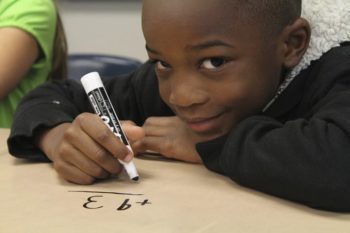5 Things Parents Should Know About Assessments
 1. Tests and Assessments Are Not the Same
1. Tests and Assessments Are Not the Same
A test examines a student’s knowledge, understanding, and skills to determine what level of learning has been reached. It generally results in a numerical or letter grade.
Assessments involves gathering, analyzing, and responding to a student’s strengths and misconceptions about their learning. It includes feedback to the learner and also informs the teacher’s practice.
An analogy would be your BMI that provides a number but not a health analysis or fitness plan. Sometimes we need a test and sometimes learning requires assessment. [Read more…]

Laura Greenstein has been an educator for over 30 years serving as a teacher, department chair, and school leader in multiple grades and subjects. She combines this background with her experience as a school board member and professional development specialist to bring fresh and original ideas to educators about teaching, learning, and assessing. She consults with schools and districts and presents at workshops and conferences locally and nationally. As an adjunct professor at the University of Connecticut and the University of New Haven, she teaches Human Development and Assessment to undergraduate and graduate students and more recently, Teaching, Learning, and Assessing with Technology in the 6th year Digital Literacy program. She has a B.S. from the University of Connecticut, an M.S. from the State University of New York at Oneonta in education, a 6th year from Sacred Heart University in administration, and an Ed.D. from Johnson and Wales University in Educational Leadership. Her website, http://www.assessmentnetwork.net, is a valuable source of information on issues and topics in assessment. She is the author of multiple books on assessment including What Teachers Really Need to Know About Formative Assessment, Assessing 21st Century Skills: A Guide to Evaluating Mastery and Authentic Learning, Restorative Assessment: Strength-Based Practices to Support all Learners, and Sticky Assessment: Classroom Strategies to Amplify Student Learning.